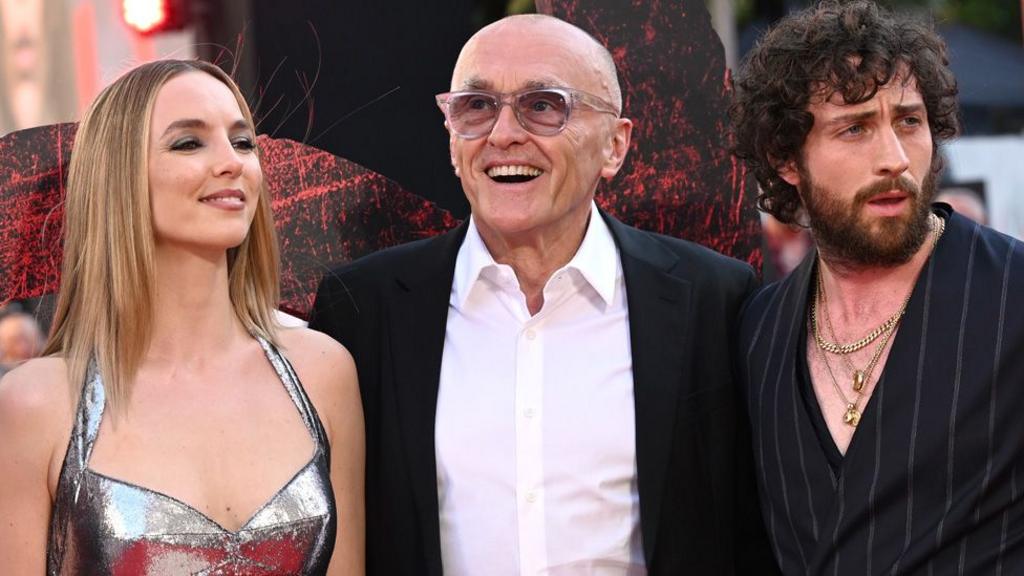The 2002 release of 28 Days Later introduced a palpable sense of everyday dread, showcasing Cillian Murphy navigating a chillingly deserted London ravaged by a zombie virus.
This dystopian vision tragically mirrored reality in March 2020, as the Covid-19 pandemic transformed the capital into a ghost town. While Murphy’s character encountered “missing” posters on Oxford Street, a memorial wall now stands opposite Parliament, commemorating the 200,000 lives lost in the UK.
Against this backdrop of societal change, director Danny Boyle and writer Alex Garland revisit their virus-ridden world with 28 Years Later.
In an interview with BBC News, Boyle explains that the pandemic’s sudden, life-altering impact—even without zombies—amplified the film’s terror. What was once confined to the realm of fiction now feels disturbingly plausible.
Crucially, the film explores humanity’s adaptation to the pandemic, the struggle to navigate an unstable and vulnerable reality.
In this latest installment, the “infected”—victims of the lab-leaked Rage Virus, last seen reaching Europe in 2007’s 28 Weeks Later—are contained within British borders.
As the rest of the world recovers, Britain’s survivors grapple with isolation and self-reliance.
Central to the narrative is 12-year-old Spike (Alfie Williams), living with his father Jamie (Aaron Taylor-Johnson) and housebound mother Isla (Jodie Comer) on Holy Island. Their isolated community, connected to the mainland only during low tide, has known only a post-virus existence.
The film highlights the generational divide between those who remember life before the outbreak and those born into it. Necessity compels Jamie to take Spike on a coming-of-age hunt on the mainland for his 12th birthday.
Humanity’s adaptation is mirrored by the evolved infected; some crawl, others lead swift packs as Alphas. The Rage Virus hasn’t subsided; it has evolved.
Boyle draws parallels between the film’s narrative and the pandemic’s impact, noting the gradual increase in risk-taking as people push the boundaries of safety—a concept unimaginable in the immediate aftermath of the virus but now a reality 28 years later.
The choice of a young protagonist is deliberate, not only because “horror loves innocence,” but also to explore the complexities of adult truths and omissions to safeguard children.
Comer relates to this thematic tension both on and off screen.
“I’ve experienced this with my own parents,” she says, alongside Boyle. “Their attempts to shield me from worry, sometimes leaving me wishing for greater transparency. Ultimately, it always stemmed from love.”
This sentiment mirrors her character, Isla. Despite her illness and declining lucidity, she fiercely cares for Spike, demonstrating resilience forged through decades of struggle.
Comer, known for her roles in apocalyptic dramas like *The End We Start From* and *Help*, portrays a character deeply entrenched in post-apocalyptic life, and, for the first time, confronts zombies.
The film’s realism is evident in the practical approach to the zombie scenes—no CGI or green screen was utilized, with actors undergoing extensive makeup sessions.
“The performers were fully committed,” she laughs. “There were moments of intense exertion, even hysteria, but the experience was incredible.”
Isla’s portrayal showcases her fluctuating lucidity, alternating between debilitation and flashes of composure, highlighting her past strength.
Comer describes the emotional range of Isla’s character as the role’s most challenging aspect.
Boyle’s work often explores social realities. Here, the subtle dynamic between Isla and Spike is crucial, showing that there are alternatives to “aggressive manhood”.
“Progress takes many forms,” Boyle states. “Spike learns this, entering the world more prepared than mere weapons would allow.”
Comer adds: “There’s a sense of hope embodied in his curiosity.”
Reviews for 28 Years Later have been largely positive.
Robbie Collins of The Telegraph awarded the film five stars, calling it Boyle’s best work in years.
Ed Potton of The Times also gave it five stars, hailing it as potentially the best in the series and praising Comer’s performance.
However, not all critics were convinced. Clarisse Loughrey of The Independent, in a three-star review, felt the film was overly reliant on metaphor.
Peter Bradshaw of The Guardian, also awarding three stars, noted tonal inconsistencies.
Boyle envisions this as the first of a trilogy, with Spike potentially featured in all three films.
The second film, directed by Nia DaCosta and written by Garland, is slated for release next year. Boyle intends to direct the third, pending approval.
When asked about his return to the horror genre, particularly considering *The Last of Us*’ success, Boyle points to a pressing political subtext driving his ambition.
Beyond Spike’s journey of self-discovery, Boyle highlights the island’s stagnant, regressive culture, clinging to a romanticized past.
This feudal system, while seemingly safe, is ultimately stifling—a realization that dawns on Spike. For Boyle, it’s a reflection of contemporary political stagnation.
He sees horror as an effective vehicle for exploring these anxieties, its enduring popularity a testament to its capacity to tap into societal fears.
Global conflict fuels the genre’s appeal, tapping into anxieties about imminent, transformative change.
The original film depicted the Rage Virus’s creation through the exposure of chimps to violent imagery.
Asked about parallels with social media’s role in amplifying polarizing content, Boyle notes the manipulative power of algorithms designed to incite anger.
“We’re encouraged to communicate through screens,” he states, holding up his phone. “They are immensely powerful and easily manipulated, mediating our interactions.”
He contrasts this with the intangible power of cinema and shared experiences.
The authentic connection forged in the cinema, experiences beyond the digital realm, are crucial and must be preserved.
For Boyle, 28 Years Later emphasizes the collective experience of confronting terror, whether real or imagined, highlighting how readily the two can blur.
Also noteworthy: Brad Pitt’s Formula 1 film and the video game *Death Stranding 2* are slated for release.
The director of this post-apocalyptic zombie horror film’s roots are in Greater Manchester.
“Untold stories” about Victor Hugo’s daughter are being sought for a special project.
The film *The Dating Game* explores a dating coach’s efforts to help single men in China find love.
Director Danny Boyle and actor Alfie Williams attended the gala screening at Newcastle’s Tyneside Cinema.

